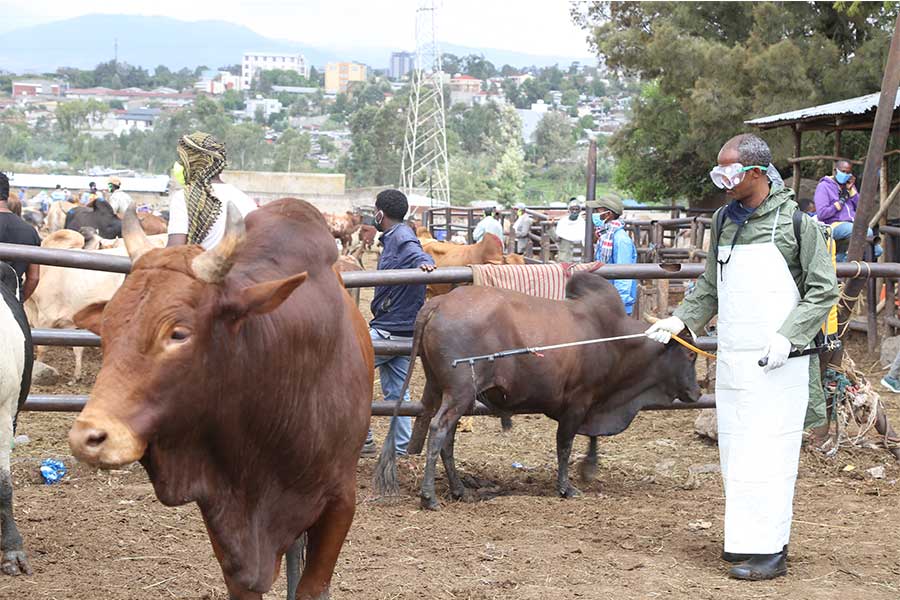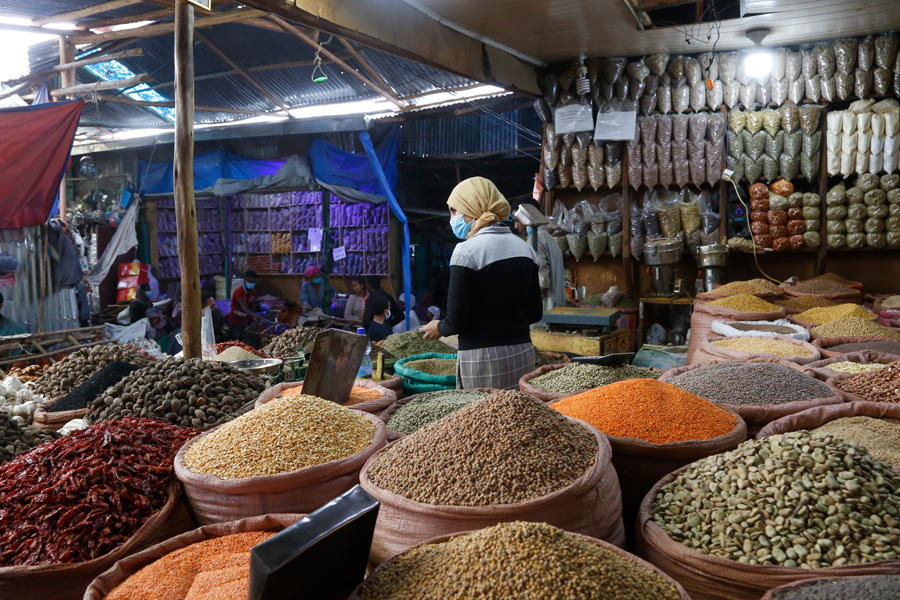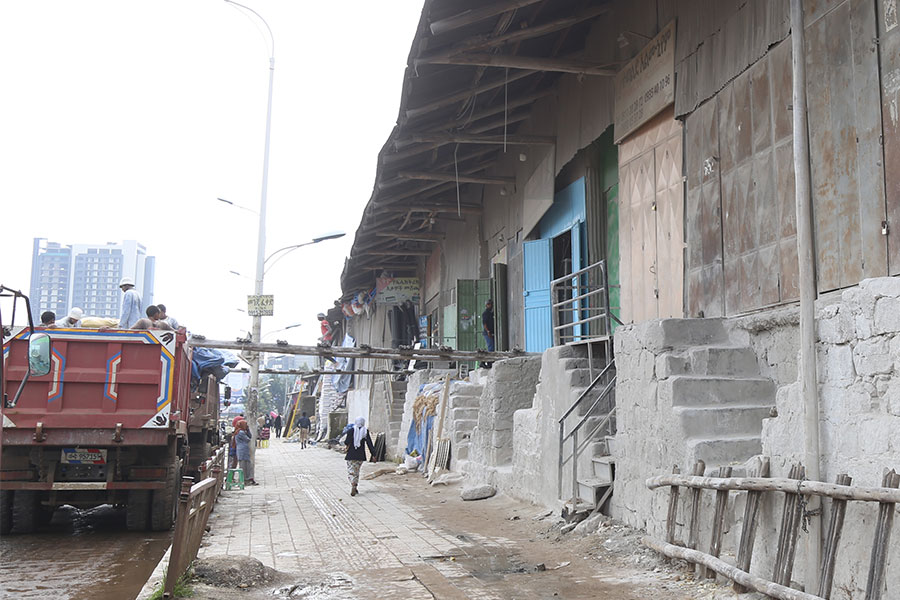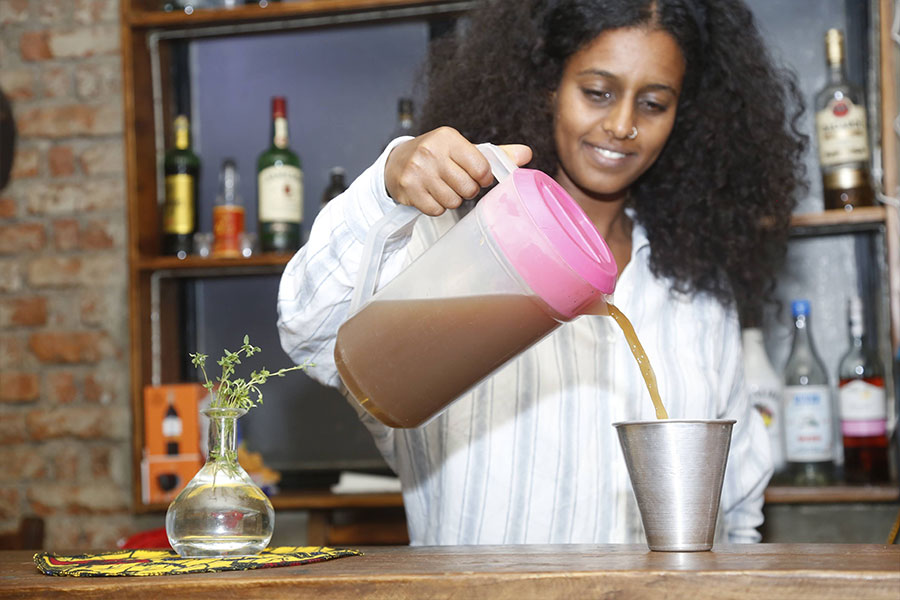
Fortune News | Jul 20,2019
Avante Water, a brand of Turkish company General Group Beverages (GGB), joined the Ethiopian bottled water market as the 78th bottler on April 4, 2019.
With its factory located in Debre Birhan, the brand took 180 million Br to launch. With a permit from the Ethiopian Conformity Assessment Enterprise on November 26, 2018, the company introduced 19lt, 1.5lt and five-litre plastic bottles in addition to the regular half-litre product. The smaller sized bottles are squeezable in a bid to make recycling and collection easy.
Avante, a Portuguese word meaning "forward", is produced from a 206-metre deep well encased in a basalt aquifer located on a 67,000Sqm plot in Chacha, Angolela Tara wereda, some 110Km north of Addis Abeba.
“Chacha is a pollution free area and is located within close proximity of Addis Abeba, making it preferable for investment,” said Elias Gebremariam, factory manager.
The production capacity of the plant is an aggregate 30,000lt of water an hour for all bottle sizes. The plant has three fully automated production lines, which carry out plastic bottle forming, filling and packaging.
“The production lines are entirely free from human contact,” said Bulent Durmaz, general manager of GGB, a subsidiary of Garipoglu Corporate Group in Turkey, which has been engaged in food, beverage and home supplies manufacturing since 1970.
Employing 78 people and importing caps from Turkey, the company is planning to open a recycling plant as well as begin manufacturing cosmetics and alcoholic beverages, according to Bulent.
GGB is not the only food and beverage producer in Chacha Wereda. Alpha Mineral Water has been in production for the past two years, while Komari Liquor, owned by European investors, has already secured land from the wereda's land management office to construct a beverage processing and packaging plant. Wub Water and Habesha and Dashen beers are as well bottled in Debre Birhan.
The majority of Ethiopia’s water bottle producers are nonetheless located in Oromia Regional State. An aggregate of five billion bottles of water is produced annually.
Eyasu Elias (PhD), assistant professor and researcher at Addis Abeba University’s School of Environmental Science with more than a decade of experience, commented that squeezable plastic bottles simplify disposal. But he does not believe it will do much to improve environmental quality.
"The critical issue of pollution in urban cities is polyethene [the most common type of plastic] material, which is not degradable for centuries," he said. "Change will only be possible by shifting to biodegradable materials."
PUBLISHED ON
Apr 08,2019 [ VOL
19 , NO
989]

Fortune News | Jul 20,2019

Fortune News | Apr 17,2020

Agenda | Sep 08,2024

Radar | May 23,2021

Fortune News | Jul 30,2022

Fortune News | Feb 02,2019

Radar | Mar 16,2024

Radar | Jan 19,2024

Featured | Apr 22,2022

Radar | Dec 08,2024

Dec 22 , 2024 . By TIZITA SHEWAFERAW
Charged with transforming colossal state-owned enterprises into modern and competitiv...

Aug 18 , 2024 . By AKSAH ITALO
Although predictable Yonas Zerihun's job in the ride-hailing service is not immune to...

Jul 28 , 2024 . By TIZITA SHEWAFERAW
Unhabitual, perhaps too many, Samuel Gebreyohannes, 38, used to occasionally enjoy a couple of beers at breakfast. However, he recently swit...

Jul 13 , 2024 . By AKSAH ITALO
Investors who rely on tractors, trucks, and field vehicles for commuting, transporting commodities, and f...

Oct 4 , 2025
Eyob Tekalegn (PhD) had been in the Governor's chair for only weeks when, on Septembe...

Sep 27 , 2025
Four years into an experiment with “shock therapy” in education, the national moo...

Sep 20 , 2025
Getachew Reda's return to the national stage was always going to stir attention. Once...

Sep 13 , 2025
At its launch in Nairobi two years ago, the Africa Climate Summit was billed as the f...